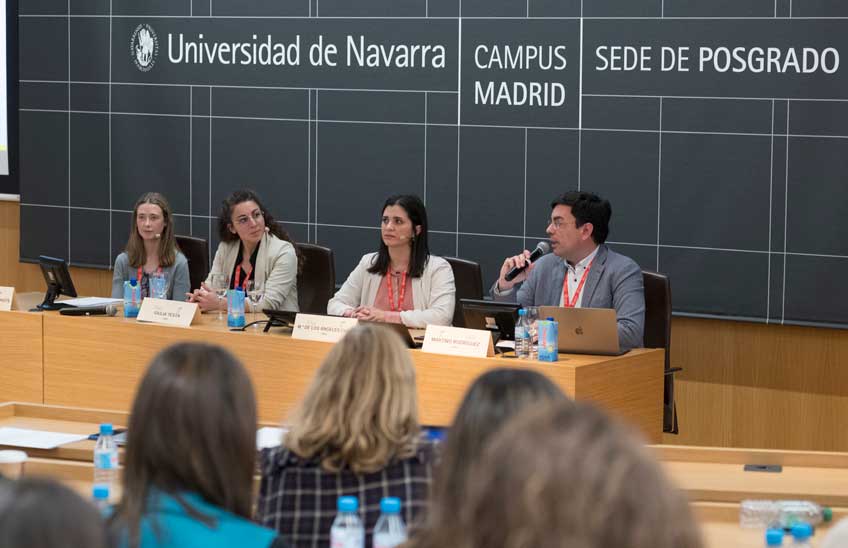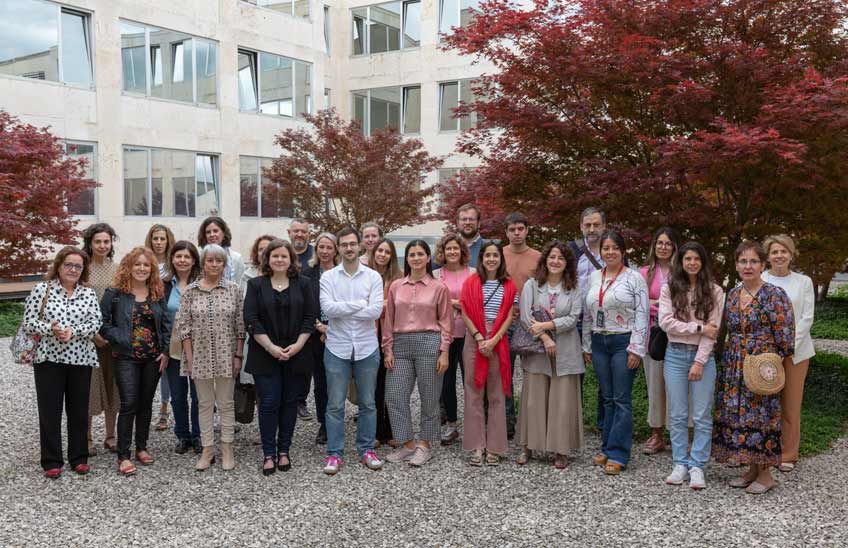Expert psychologists warn of lack of scientific validity of mental health programs in Spanish schools
The University of Navarra and the International University of La Rioja have analyzed mental health promotion initiatives in Spanish schools.

FotoPilar Martín Bravo<br>/Los investigadores Victoria Nieuwenhuys (ICS), Giulia Testa (UNIR), María de los Ángeles Cueli (ICS) y Martiño Rodríguez (ICS) durante la presentación de resultados de investigación
30 | 01 | 2024
The Institute for Culture and Society (ICS) of the University of Navarra in partnership with the Institute of Transfer and research of the International University of La Rioja (UNIR-ITEI) have conducted a research to learn how the promotion, prevention and intervention in mental health disorders is being addressed in the school context in Spain, the United Kingdom and the United States.
The research has identified that, although there are many initiatives in the Spanish context, the vast majority lack scientific backing, in contrast to what happens in the USA and the UK. For Martiño Rodríguez, researcher of the ICS and manager of project, this is a worrying trend as it indicates that "a lot of energy and resources are invested in developing programs that in the end do not have the desired path and consolidation".
Likewise, a scarcity of mental health literacy strategies and preventive programs for conditions such as anxiety, depression, suicide, self-injury, ED and the development of healthy sexuality has been detected. Most of the Spanish programs focus on social-emotionaldevelopment , in the case of children, or on the prevention of bullying and addiction to technologies, in the case of adolescents.
In this sense, the experts propose systematizing all the existing scattered initiatives, since many share the same theoretical and methodological framework , as well as advancing in more universal and standardized programs.
Success stories
Among the initiatives analyzed in the Spanish context, some have been identified that were endorsed by programs of study. The effectiveness of programs based on the model of emotional competencies, as well as emotional intelligence and cooperative play, has been proven. In fact, it has been found that, in addition to favoring mental health, these subject programs enhance academic performance and improve partner-emotional competencies.
According to UNICEF, Spain is the country with the highest prevalence of disorders in the European Union. For researchers, the promotion of emotional Education in childhood contributes to the development of protective mental health factors and schools provide an ideal environment for prevention, identification and care for children and adolescents. Therefore, in addition to having validated programs, experts recommend investing in the training of the collective professor and staff and integrating social-emotional learning in curriculum .
The project 'Review and evaluation of prevention and intervention policies in child and adolescent mental health in schools' has been presented at framework of the workshop 'Mental health and emotional well-being in schools', organized by ICS and UNIR-ITEI. The goal of the workshop was to reflect on the role of the context educational in the promotion of emotional well-being and prevention of mental health difficulties among students.




